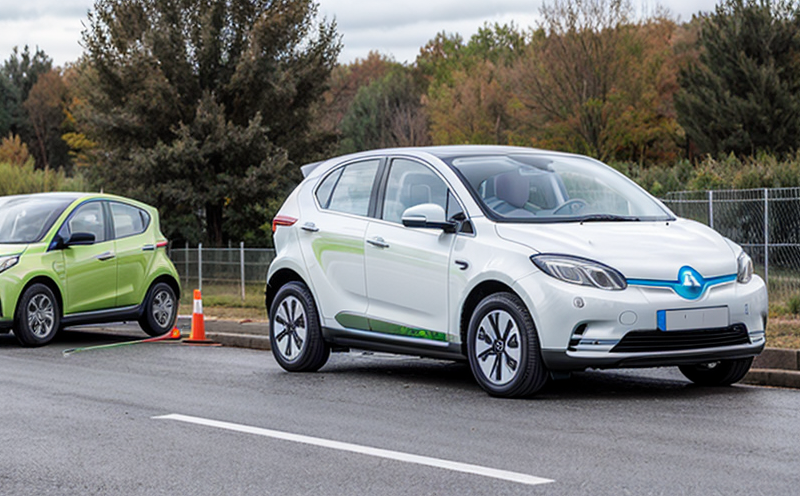BS EN 62620 EV Large Lithium-Ion Cell Testing
The BS EN 62620 standard is designed to ensure the safety and performance of large format lithium-ion cells used in electric vehicles (EVs) and e-mobility applications. This comprehensive testing service focuses on simulating real-world conditions that these batteries will encounter during vehicle operation, ensuring they meet stringent safety requirements.
The BS EN 62620 standard covers a wide range of tests aimed at assessing the electrical characteristics, mechanical integrity, and thermal stability of lithium-ion cells. This includes both static and dynamic testing procedures to evaluate how well these cells perform under various stress conditions. The testing protocol is designed to simulate high-intensity use scenarios such as rapid charging/discharging cycles or extreme temperature variations.
Our laboratory utilizes state-of-the-art equipment compliant with the latest versions of EN 62620, ensuring accurate and reliable test results. Our team of experts ensures that all samples are prepared meticulously following strict guidelines provided by the standard. This includes precise handling to prevent contamination or damage before testing begins.
One key aspect of this service is the ability to conduct tests according to specific environmental conditions prescribed in EN 62620, which can vary based on the intended application of the battery cell. For instance, cells used in EVs may need to withstand cold temperatures down to -40°C while still functioning properly. Our facility has chambers capable of replicating these harsh environments accurately.
In addition to environmental testing, we also perform mechanical stress tests which involve applying forces similar to those experienced during vehicle acceleration or braking events. These tests help identify potential weaknesses within the cell structure early on so manufacturers can address them proactively.
Another crucial component of our service is ensuring that all test results are reported comprehensively and transparently according to the requirements set forth by EN 62620. Our reports include detailed descriptions of each test conducted along with their outcomes, providing clients with valuable insights into their product's performance.
- High-precision measurement equipment
- ISO/IEC 17025 accredited laboratory
- Compliance with latest EN standards
Benefits
By adhering to the rigorous standards outlined in BS EN 62620, manufacturers can gain several advantages:
- Enhanced Safety: Ensures that large lithium-ion cells used in EVs meet safety regulations set by international bodies.
- Better Performance: Identifies areas for improvement before they become critical issues during actual use.
- Increased Market Credibility: Demonstrates commitment to quality and reliability which enhances brand reputation among consumers.
International Acceptance and Recognition
The BS EN 62620 standard has gained widespread acceptance across the global automotive industry. It is recognized by major automotive manufacturers worldwide as a key component in ensuring the safety of lithium-ion cells used in electric vehicles.
- Australia
- Canada
- China
- European Union (EU)
- India
- Japan
- Korea
- United States of America (USA)
Competitive Advantage and Market Impact
Complying with the BS EN 62620 standard provides significant competitive advantages for companies operating in the e-mobility sector:
- Meeting regulatory requirements ahead of competitors
- Gaining early access to new markets
- Enhancing customer trust and satisfaction





